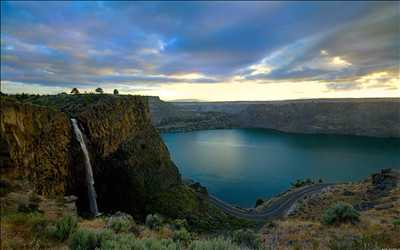The adoption of the constitution
One of the most democratic way to the adoption of a constitution is its specially chosen for this purpose by the constituent assembly. In contrast to the Parliament is a unicameral body usually (in Brazil, he was a two-chamber), and after the adoption of the constitution, he often dissolved, giving way to the parliament, elected on the basis of a new constitution.
The Constituent Assembly (with different names) adopted the constitution of Tunisia in 1956., Namibia 1990., Bulgaria in 1991, and others often Constituent Assembly continues its activities as a regular parliament.
The Constituent Assembly is not always formed only through elections. In Nigeria, in 1978, in Ghana, in 1979, in Turkey in 1982. it is partially elected on the basis of the corporate representatives of different groups of the population, and partly nominated by the military authorities.
These constituent assemblies usually play the role of advisory (in Turkey in 1982, Nigeria in 1978, they were called advisory) because their results are approved by leaving during the transition to civilian rule by military authorities. Advisory constituent assembly adopted the constitution of Kuwait in 1962, approved by the king (Emir).
Some constitutions adopted by parliaments, proclaimed themselves for this purpose constituent assemblies (in Sri Lanka in 1972, Papua - New Guinea in 1975, Tanzania in 1977, the Netherlands 1983., Brazil, 1988., 1992 in Zambia.). By parliaments without renaming them to the constituent assembly adopted the constitution of China in 1982, Mozambique in 1990, Vietnam in 1992, Georgia in 1995, Ukraine in 1996, Poland in 1997
In some countries the constitution adopted on parliamentary bodies, part of which were sometimes, and sometimes there were parliaments (for example, in the People's Consultative Assembly of Indonesia in 1945, the Great Jirga in Afghanistan in 1987, the Grand National Hural of Mongolia in 1992 g).
Constitution are often made through a referendum - a vote of voters nationwide (France in 1958, Egypt in 1971, the Philippines in 1986, Algeria in 1996, Belarus in 1996, and others). The referendum - a democratic institution, but it is only the voter can answer "yes" or "no" to the question of whether he approves the constitution, to propose some amendments as he can. However, without prior public discussion of the project, or at least in Parliament citizen is not easy to understand such a complex document such as the constitution.
In a number of cases accepted by referendum reactionary constitution (in Greece, Rhodesia, etc.). Sometimes submitted to a referendum of the constitution, were subjected to a preliminary discussion in the representative bodies already adopted by the parliaments or constituent assemblies (Greece in 1975, Spain in 1978), and sometimes the constitution, already adopted by referendum, then approved by elected on the basis of the Constitution, the Parliament ( Burma in 1974, Ethiopia in 1987.).
In some countries the constitution had been adopted by the military authorities in fact, proclaimed the way to the transition to civilian rule. Military advice as a last resort to approve the advisory constituent assemblies of the constitution, sometimes making any substantial amendments (Turkey in 1982, Nigeria in 1989).
In some countries with a socialist orientation, where the revolutionary-democratic (the only) party made the most important public functions, the first constitution adopted directly by their supreme bodies - Congresses (Congo in 1973) or the executive committees of the parties (Angola and Mozambique in 1975). At present and in the Congo and in other countries, the Constitution replaced.
Finally, a number of monarchies happened oktroirovanie constitutions: they were granted a "good" by the monarch to his "faithful people" (Jordan in 1952, Nepal in 1962, Swaziland in 1978, Saudi Arabia in 1992, and others) . During the collapse of the colonial empires oktroirovanie acquired some form: Metropolis (usually after the conference of the "round table") has granted the constitution of their former colonies to declare independence states.
In the UK, it was done in the form of "Order in Council" (the act of a monarch in the Privy Council, which consists of about 300 people - members of the government, spiritual hierarchy, nobility, high-prostrate). Thus, it was adopted more than 30 of the Constitution for the British colonies that became independent (most of these acts are
beautiful pictures

